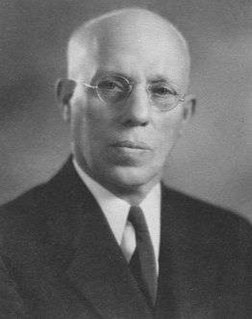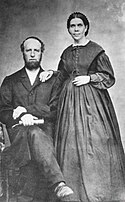
The Seventh-day Adventist Church is a Protestant Christian denomination which is distinguished by its observance of Saturday, the seventh day of the week in Christian and Jewish calendars, as the Sabbath, and its emphasis on the imminent Second Coming (advent) of Jesus Christ. The denomination grew out of the Millerite movement in the United States during the mid-19th century and it was formally established in 1863. Among its co-founders was Ellen G. White, whose extensive writings are still held in high regard by the church. Much of the theology of the Seventh-day Adventist Church corresponds to common evangelical Christian teachings, such as the Trinity and the infallibility of Scripture. Distinctive post-tribulation teachings include the unconscious state of the dead and the doctrine of an investigative judgment. The church is known for its emphasis on diet and health, including adhering to Kosher food laws, advocating vegetarianism, and its holistic understanding of the person. It is likewise known for its promotion of religious liberty, and its conservative principles and lifestyle.

Criticism of the Seventh-day Adventist Church includes observations made about its teachings, structure, and practices or theological disagreements from various individuals and groups.

John Nevins Andrews was a Seventh-day Adventist minister, the first official Seventh-day Adventist missionary, writer, editor, and scholar. Andrews University, a university owned and operated by the Seventh-day Adventist church, is named after him.

Herbert Edgar Douglass Jr. was a Seventh-day Adventist theologian. He was born in Springfield, Massachusetts, US, the oldest of five children to Herbert Edgar Douglass Sr (1904–1983) and Mildred Jennie Munson (1908–1988). He earned his Doctorate in Theology at Pacific School of Religion in 1964.

The theology of the Seventh-day Adventist Church resembles that of Protestant Christianity, combining elements from Lutheran, Wesleyan-Arminian, and Anabaptist branches of Protestantism. Adventists believe in the infallibility of Scripture and teach that salvation comes from grace through faith in Jesus Christ. The 28 fundamental beliefs constitute the church's official doctrinal position.

The Biblical Research Institute (BRI) is a service department of the Seventh-day Adventist Church with the three stated functions of research, apologetics, and service to the church. It serves as a theological consultant to the General Conference. It consists of four Adventist theologians working at the church headquarters in Silver Spring, Maryland, and is currently directed by Elias Brasil de Souza. The institute also directs the Biblical Research Institute Committee (BRICOM) which consists of about forty members worldwide, and the Biblical Research Institute Science Council (BRISCO), which investigates the relationship between science and religion.

Niels-Erik Andreasen was the president of Andrews University in Berrien Springs, Michigan, from 1994 to 2016.

The 1888 Minneapolis General Conference Session was a meeting of the General Conference of Seventh-day Adventists held in Minneapolis, Minnesota, in October 1888. It is regarded as a landmark event in the history of the Seventh-day Adventist Church. Key participants were Alonzo T. Jones and Ellet J. Waggoner, who presented a message on justification supported by Ellen G. White, but resisted by leaders such as G. I. Butler, Uriah Smith and others. The session discussed crucial theological issues such as the meaning of "righteousness by faith", the nature of the Godhead, the relationship between law and grace, and Justification and its relationship to Sanctification.

Historic Adventism is an informal designation for conservative individuals and organizations affiliated with the Seventh-day Adventist Church who seek to preserve certain traditional beliefs and practices of the church. They feel that the church leadership has shifted or departed from key doctrinal "pillars" ever since the middle of the 20th century. Specifically, they point to the publication in 1957 of a book entitled Seventh-day Adventists Answer Questions on Doctrine; which they feel undermines historic Adventist theology in favor of theology more compatible with evangelicalism. Historic Adventism has been erroneously applied by some to any Adventists that adhere to the teachings of the church as reflected in the church's fundamental beliefs such as the Sabbath or the Spirit of Prophecy. They misapply those who hold to mainstream traditional Adventist beliefs as synonymous with Historic Adventist.

Ellen G. White, one of the co-founders of the Seventh-day Adventist Church, has been extremely influential on the church, which considers her a prophet, understood today as an expression of the New Testament spiritual gift of prophecy. She was a voluminous writer and popular speaker on health and temperance. Her teachings are preserved today through over 50,000 manuscript pages of her writings, and the records of others.

Milian Lauritz Andreasen, was a Seventh-day Adventist theologian, pastor and author.

George Raymond Knight is a leading Seventh-day Adventist historian, author, and educator. He is emeritus professor of church history at Andrews University. As of 2014 he is considered to be the best-selling and influential voice for the past three decades within the denomination.

Arthur Lacey White (1907–1991) was noted for service to the Ellen G White Estate, as a writer, and theology professor.

Denton Edward Rebok (1897–1983) was a Seventh-day Adventist educator and administrator. Born in Pennsylvania, he served the denomination for 44 years. He spent 23 years as a missionary in China. While there he founded the China Training Institute, a junior college located in the town of Qiaotou in northern Jiangsu province, about 160 miles from Shanghai and 30 miles from Nanjing, in 1925. He taught at Washington Missionary College, La Sierra College, was president of Southern Missionary College also Dean of the Seventh-day Adventist Theological Seminary. He served briefly as chair of the Ellen G. White Estate board of trustees in 1952, and gave two presentations about Ellen G. White at the 1952 Bible Conference. He authored Believe His Prophets, an apologetic for the prophetic gift of Ellen White.

William G. "Bill" Johnsson (1934–) is a Seventh-day Adventist author and was editor of the Adventist Review, the church's flagship weekly magazine, from 1982 to 2006.

Ellet Joseph "E.J." Waggoner was a Seventh-day Adventist particularly known for his impact on the theology of the church, along with friend and associate Alonzo T. Jones at the 1888 Minneapolis General Conference Session. At the meeting of the General Conference of Seventh-day Adventists Ellet J. Waggoner along with Alonzo T. Jones presented a message on justification supported by Ellen G. White, but resisted by church leaders such as G. I. Butler and others. He supported theological issues such as the meaning of "righteousness by faith", the nature of the Godhead, the relationship between law and grace, and Justification and its relationship to Sanctification.

Ángel Manuel Rodríguez (1945—) is a Seventh-day Adventist theologian and was the director of the Biblical Research Institute (BRI) before his retirement. His special research interests include Old Testament, Sanctuary and Atonement, and Old Testament Theology. He has written several books, and authors a monthly column in Adventist World.

Arthur Nelson Patrick was a Seventh-day Adventist theologian and historian. At the time of death, he was an honorary senior research fellow at Avondale College in New South Wales, Australia. He also worked in pastoral ministry, evangelism, religion teaching, academic administration, and hospital chaplaincy for the Seventh-day Adventist church.

Edward E. Heppenstall was a leading Bible scholar and theologian of the Seventh-day Adventist Church. A 1985 questionnaire of North American Adventist lecturers revealed Heppenstall was the Adventist writer who had most influenced them.

Hans Karl LaRondelle was a respected Seventh-day Adventist theologian; a strong proponent of the gospel and salvation by faith alone. In a 1985 questionnaire of North American Adventist Theology lecturers, LaRondelle tied for fourth place among the Adventist authors who had most influenced them, and was number one amongst the under 39 age group. He died March 7, 2011.





